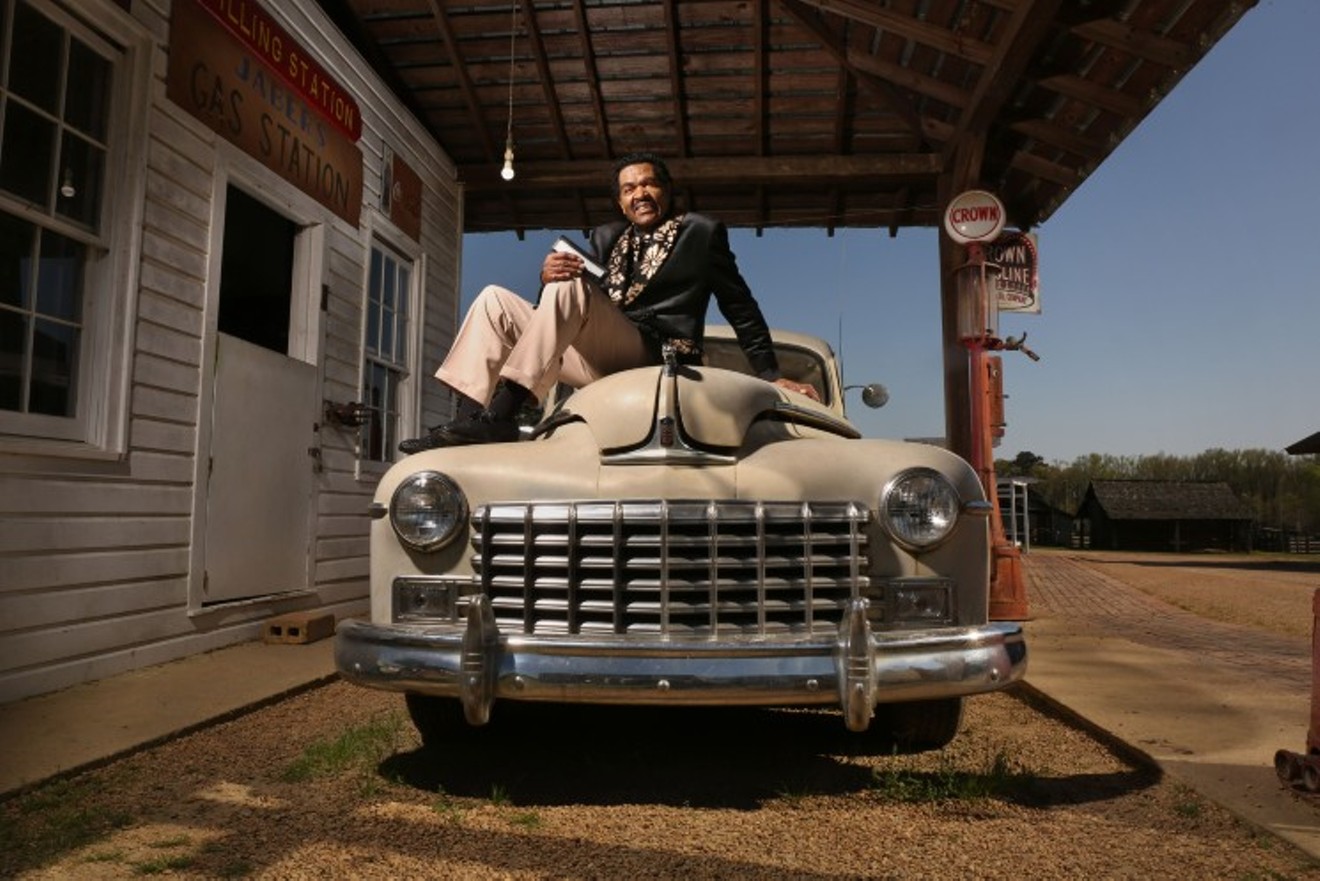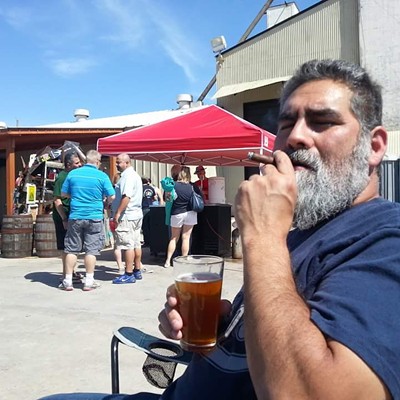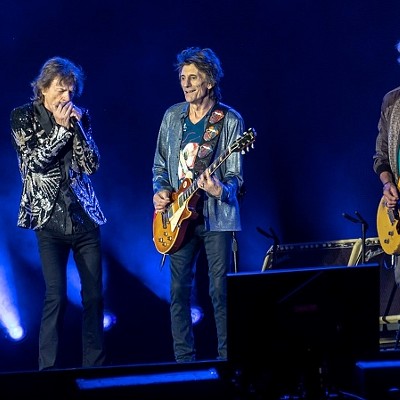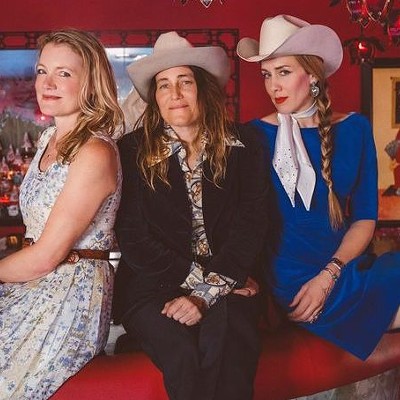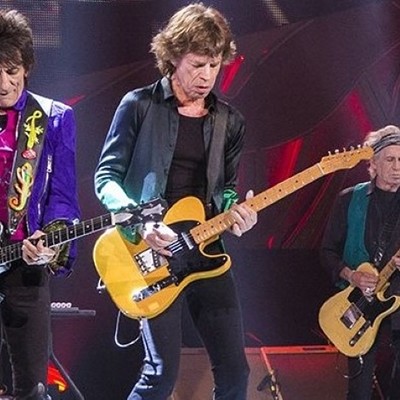For instance, when we led with this, our follow-up was to ask Rush, 88, if he has any special Christmas memories to share with readers.
“Naw. None other than just ho-ho-ho. You can take that any way you want,” he said with a laugh.
Rush has built an avid following of fans over more than a half-century in music, listeners attracted to his unique sound forged in locales from Louisiana to Arkansas to Illinois and finally Mississippi. A Blues Hall of Fame Museum artist, multi-Grammy winner and the author of more than 400 recordings over nearly 70 years in music, his latest record, Rawer Than Raw, is an all-acoustic showcase of the genre’s rich Mississippi Delta history.
That Grammy-winning album was released in 2020 and Rush has been eager to bring the music to live audiences. He said that’s part of the reason he’s still on the road at 88.
“You know, we’ve got to get out here and bump our head against the wall and try to sell some records because you know, the record shop don’t sell that many records anymore because it’s all just downloads. Your bandstand is your record shop now,” he said.
“I’ve been blessed. Up until the pandemic hit, I did work on 285 shows a year for about 65 years and that kept me going and kept me selling records, because I could sell records off the bandstand,” he added. “Now, I’m back at work now. The pandemic came in and made us be off for a couple of years, maybe three years, and slowed it way down, but we’re getting to go back to work somewhat now, you know?”
Rush said his style of music – and particularly the acoustic songs he’s spotlighting from Rawer Than Raw – give him a performance advantage.
“I’m a blessed man. I can play with a band or without the band during the acoustic dates — sometimes with a band or a smaller band and sometimes even by myself doing close-up acoustic stuff. I’m a blessed man that can be able to do that because when B.B. King was living, we always talked about those kinds of things he could not do because he couldn’t play by himself. Buddy Guy talked about the same thing. I mentioned those two guys because I think now I am the oldest blues singer in this category living.
“I can play with the band or without the band, there’s just a few people that can do that and be successful and be good at it and I’m a blessed man to be able to do both sides of the fence because last night Mavis Staples and I played in Austin and I did an acoustic set and tonight I’m doing a band set,” he mentioned. “Ain’t many people that can go from one side of the fence to the other side of the fence like that. But I’m blessed.”
Regarding his date this weekend at Continental Club, he said, “You know, it makes me feel good that you’re going to be able to give my name to a club that’s not as large as a lot of other big festivals and I still can walk away with a decent amount of money but it don’t cost the club owner an arm and a leg to have me there with my name. That’s good for the club, it’s good for the people because you don’t have to gouge them out with the price, you know?
“It’s gonna be storytelling and doing my songs,” he noted. “It’s gonna be a great show and thank God I can deliver those kind of things. I can be just as good with one or two on stage as I am on stage with 10 people.”
Part of the appeal of a Bobby Rush show will be hearing his stories, tales from a long and winding road that’s made its way through an ever-changing American landscape. In 2022, there are some who want the landscape to resemble a divided and segregated time in this country, something akin to the Jim Crow days Rush grew up in, more like the times he was forced to play behind a curtain because white audiences wanted the music but didn’t want to see Black artists delivering it.
Rush has seen the ebb and flow of racial progress, the advances and stumbling steps backwards. He’s always leaned on music in hard times, as a bluesman does, but he’s also bet on himself and his talent.
“For me – as a musician, as a blues singer, as a Black man – a lot of things have changed but so many things have remained the same. I’m a little bit different from most people that’s in this business and I came up in a hard way, but God has really blessed me to be able to do what I do and do it well. And I’m good at what I do. And I tell young people coming up, especially Black people coming up, be good at what you do and be good business-minded people in the business side of it.
“I’m so good at what I do that you can come to see me and say, ‘Well, I don’t like ol’ Bobby Rush, but damn he good.’ That’s all what matters,” he emphasized. “We as Black people and other people have to learn to live in this world together because whether you’re Black, white, green or whatever, there’s some things we have in common and that’s love for each other and the music itself. One thing about music, it don’t have no race, it don’t have no color barriers, it don’t have no creeds.”
Rush also sees himself as an anomaly in blues music because he’s been dubbed “King of the Chitlin’ Circuit” but he’s also more recently gotten his flowers from mainstream blues audiences. He’s “thanking God everyday” he’s a crossover success but did say more diversity in blues audiences would be welcomed.
“Me and Buddy Guy talk about this all the time. I just love Buddy Guy. But the average 25 year-old Black person has never heard of Buddy Guy. But the whites have. I’m on both sides of the fence,” he said. “30, 40 years ago most of the white people didn’t know about me. Now, it’s almost an equal thing.

"God has really blessed me to be able to do what I do and do it well. And I’m good at what I do," Rush shared.
Photo by Bill Steber, courtesy of Firefly Media
With Rush, there’s a lot to ask about concerning the past. He rubbed elbows with fellow blues legends like Elmore James, Little Walter and Muddy Waters. He toured for a decade with Rudy Ray Moore – better known as Dolemite - and was in the Eddie Murphy movie homage to the comedian. He’s worked with Gamble and Huff and his breakthrough single “Chicken Heads” has been featured in film and TV work. His 2021 autobiography, I Ain’t Studdin’ Ya: My American Blues Story, includes testimonials from Dan Aykroyd, Billy Gibbons and Talking Heads’ Jerry Harrison.
But, we’re interested in this veteran’s take on the future of blues music, a genre folks are always trying to send to an early grave. He said if the blues are going to survive artists can’t keep repeating what’s already been done. And the key to growing a Black audience is by creating music that relates to Black listeners. He offered guitar phenom Christone "Kingfish" Ingram as “one of the few guys who come along and is gonna keep it going.”
“Kingfish is so good, but Black people don’t know who he is. But I think if he keeps doing what he’s doing, they’re gonna get to him. He’s got to record the kinds of records that relates to them. I don’t think that’s happening so far. Not that he’s not good, but you’ve got to be good and different.”
It’s how Bobby Rush did it and why he’ll be a welcomed Christmas present for some audience members this Saturday evening. He is the gift that keeps on giving the gift of music. He said he’s just finished a new record. He doesn’t know when he’ll release it but did share one final treasure with us, lyrics from one of the songs from the album, a song he said he’s crazy about and sums up our chat about his past, present and future.
“I come a long way, but I’ve got a long way to go/The things I used to do down in Louisiana, I don’t do anymore/Used to carry water 15 miles for 50 cents a day/It’s a shame before nine years old I had to work so hard every day/I used to pick cotton in the cotton field where I used to live/Now I still pick cotton, but I own the cotton field/Now I’m free, I’m free, can’t you see/I’ve got the chains off my ankles and the chains off my mind.”
Bobby Rush, Saturday December 17 at Continental Club, 3700 S. Main. With Keeshea Pratt Band. Doors at 7 p.m. $25-$40.

